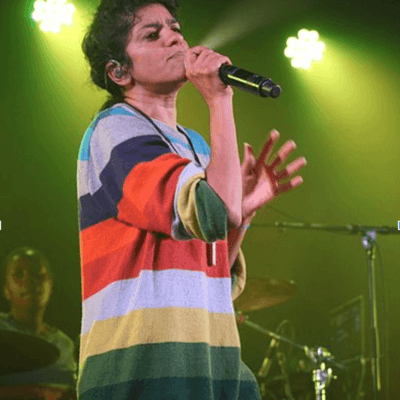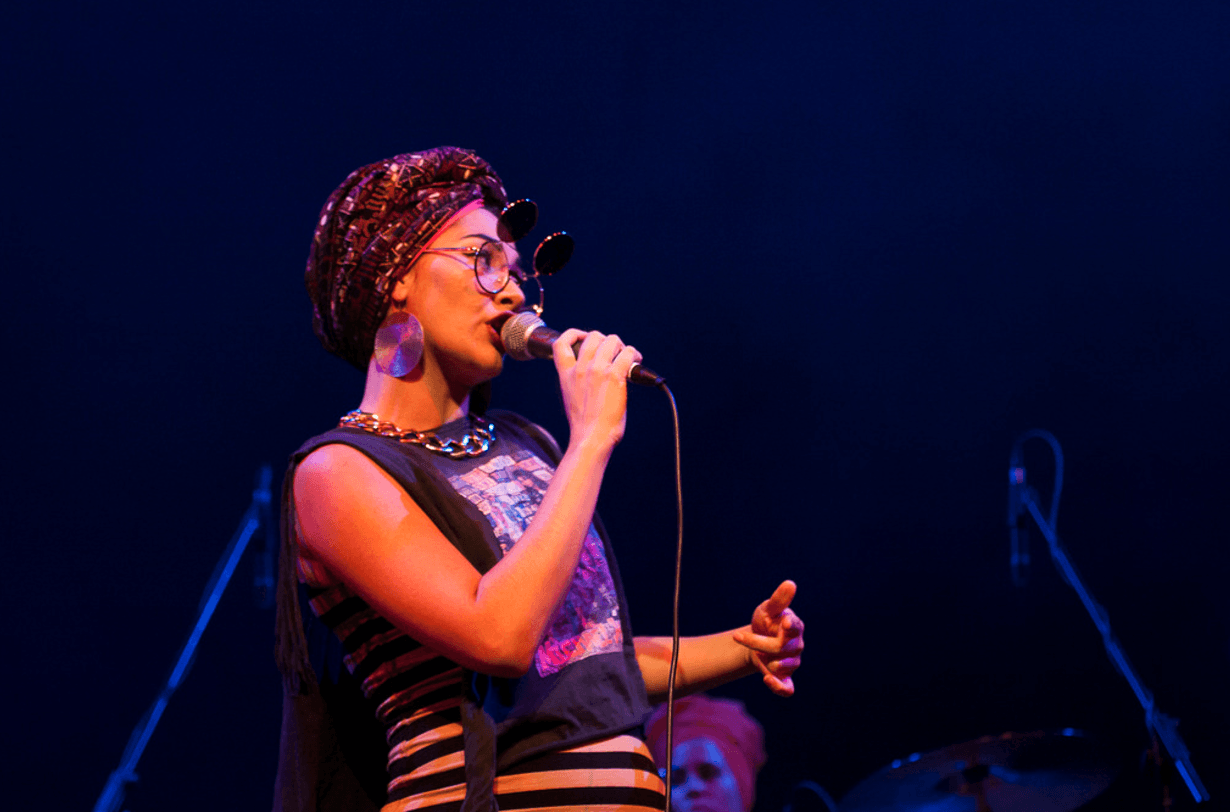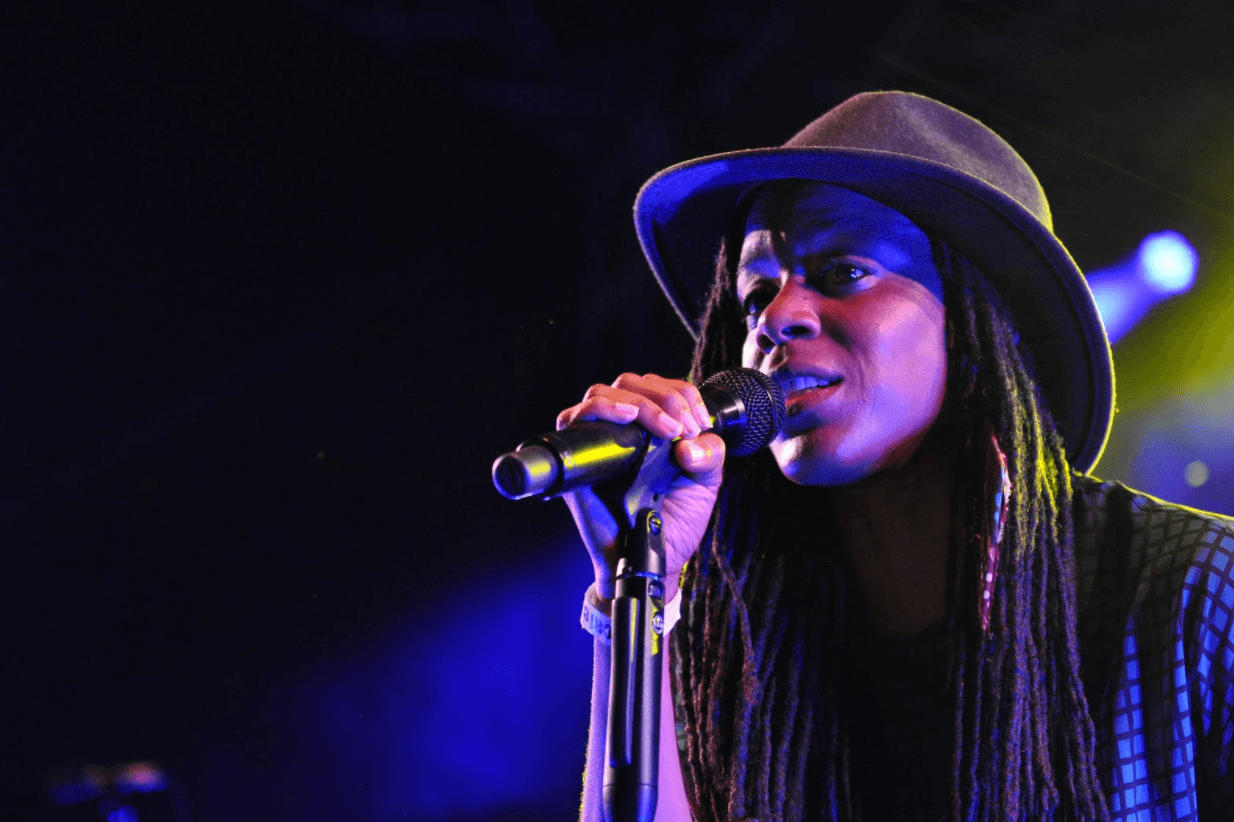
Hip hop is uniquely powerful because it sits comfortably at the borderline between poetry and song. It bridges the gap between the two, and in turn contains the qualities of both song and spoken word. Unlike poems (or any other word based message), music has the upper hand of getting caught in your head for long periods of time. This is a vital tool for those trying to spread a political message–– having the power to keep words in someone’s head is just about the best way to spread a political agenda. Just think, what if on the same day, at the same time, the whole world (including all the world leaders), had the chorus to Queen Latifah’s Black on Black Love repeating in their head? What about Salt n Peppa’s feminist anthem None of Your Business? Would political decision making be affected? Similar to poetry however, rap is much more lyric based than any other musical genre. Because of it’s fast paced nature, rap is able to squeeze an immense amount of lyrical content into a short two minute song. It is not tied to traditional song structures in the same way as other music often is, and in turn, rap can really pack a punch.

With so much political power, hip hop is the perfect art form to be leading many of today’s revolutionary movements. It reclaims oppressive spaces through its loud, commanding, and aggressive nature, creating a genre of wildly popular music. Unfortunately, most artists in modern mainstream hip hop have very little interest in women’s issues. First and foremost rap addresses racism–– a critical issue for men and women both nationally and globally. Too often however, these political anthems are not intersectional. I’m sure most of us know the feeling of thinking we’ve found a great new rap song until about thirty seconds in when the artist starts describing how he’s going to force women to have sex with him. Suddenly your foot stops tapping and you’re not feeling as empowered as you were a second ago. Of course there are countless male rappers out there who don’t do this, but I think we can agree this is an all too familiar feeling for those of us who seek out rap in our day to day lives. Which is why, now more than ever, it is time for female hip hop artists to finally have their time in the limelight.

It’s interesting to note that, generally speaking, female rappers are much more likely to include political lyrics in their songs than male rappers. There are many possible reasons for this, but one of them is simply that women have to work much harder than their male peers to get the mic in the first place, so are probably more inclined to say something that really needs to be heard. Unlike what was mentioned earlier, female rappers are consistently intersectional and most songs will engage with both gender and race, rarely choosing one. One of the most common threads in hip hop by women is the idea of ownership over their own body and sexuality, two things which are often portrayed as under male control in mainstream media. There is little more refreshing to me as a woman in the United States than seeing another woman stand up, take control, get angry, and rile up a crowd all while being sexy as hell.
With all of this said, now more than ever it is time for us, as hip hop consumers, to support and nurture female rappers. They stand strong in solidarity against sexist and racist rhetoric that is too often a structure for our society. Female rappers are a triple threat: they are women, they are usually people of color, and they refuse to be silenced. They are prepared and capable to be our generation’s revolutionary leaders––if only we would open our ears and listen to what they have to say! The hip hop industry has been paving the way to produce political leaders for years, it’s now time to give these women the platform for their own voices and a fan base to support them.
So where do we begin?
For starters, tune in to Queen Beats every Tuesday night from 12-2am on KZSC, Santa Cruz. (88.1FM or kzsc.org) Next, like Queen Beats on Facebook and stay updated with what women are up to in the hip hop industry: https://www.facebook.com/QueenBeatsKZSC/
Call in! Make requests! Enjoy! We are the generation that is going to give these women their space, so let’s start now!
*artists shown in included images– top: Alphamama, bottom: Akua Naru, featured image: Soom T

